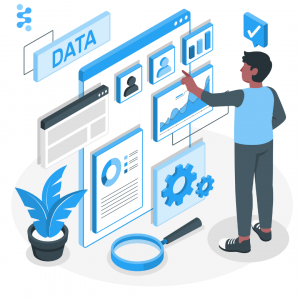— Krishna, CEO, Saras Analytics
AUSTIN, TEXAS, UNITED STATES OF AMERICA, April 26, 2023/EINPresswire.com/ — Today, brands are inundated with vast amounts of data, and while this can be beneficial, it can also lead to data overload and silos. The challenge then becomes extracting meaningful insights and taking decisive actions amidst the noise. Off-the-shelf point solutions may provide a temporary fix, but they often fail to take a holistic view and limit scalability.
Saras Analytics advises $5 – $50M brands to allocate 1% to 2% of their annualized revenue for their data initiatives. By investing in Saras’ comprehensive managed data operations for a tailored solution, brands can efficiently cover all their data needs with a single expense line and set themselves up for success.
Krishna, CEO @Saras Analytics, explains the various costs associated with data initiatives, including data acquisition, storage and processing, analysis and visualization, quality management, personnel and training, and opportunity costs.
Krishna notes that the costs associated with data initiatives can vary widely, depending on the size and complexity of the data, the technological infrastructure required to process and store the data, the skills and expertise of the personnel involved, and the overall goals and scope of the initiative.
He suggests that companies take into account the following costs when planning their data initiatives:
*Data acquisition costs: the cost associated with acquiring and collecting data from various sources, such as purchasing data from third-party providers or building data collection systems.
*Data storage and processing costs: the cost associated with storing and processing the data, including purchasing, and maintaining servers or cloud-based infrastructure, as well as software licensing fees.
*Data analysis and visualization costs: the cost associated with analyzing and visualizing the data, such as hiring data analysts or purchasing analytics software.
*Data quality management costs: the cost associated with ensuring the accuracy and consistency of the data, such as investing in data cleaning tools or hiring data quality specialists.
*Training and personnel costs: the cost associated with training personnel on data-related skills and technologies, hiring and retaining data professionals.
*Opportunity costs: the cost associated with missed opportunities or delayed decision-making due to a lack of timely and accurate data.
Krishna also emphasizes that businesses create an owned analytics solution by working with an analyst to document their business requirements. Automating reporting and analytics can be achieved by using ETL tools like Daton, Stitch, and Fivetran to move data from various sources into a cloud data warehouse like Snowflake or BigQuery. If a source is not supported by these tools, an analyst or data engineer has to write code to automate data extraction from these sources into the data warehouse. Alternatively, if the source data is not used frequently, the analyst can spend some time periodically to manually download the data and move it to a data warehouse.
Daton reduces the manual work of the analyst to zero by building custom connectors free of cost for customers to use. Krishna double-clicks on the importance of having a data warehouse, which acts as the single source of truth for all business data.
Once the data is in the warehouse, building the necessary data models is the next step using tools like dBT or Airflow, with the costs being the costs associated with hiring an analyst or data engineer. Data visualization is the final step and can be achieved using BI tools like Tableau, Looker, or PowerBI.
Krishna advises businesses that while the costs associated with data initiatives can be significant, the potential benefits such as improved decision-making and increased efficiency outweigh these costs by a significant margin in the medium to long run.
Check out the case study of a leading health & wellness DTC/subscription brand that invested 1% of ARR and saw 50x ROI. From tracking implementation to cohort analysis, Saras focused on high-impact areas of CRO and optimizing LTV/CAC ratio keeping the profitability metrics as the north star- https://share.hsforms.com/1pjxBeYCzRlStqXf1e-yrAAd7z2y
Saras Analytics – the Future of eCommerce, Retail, & DTC Intelligence
Introducing Saras Analytics, a premier provider of unified data & analytics solutions tailored for eCommerce, retail, & DTC sectors. We empower businesses with actionable insights, fostering growth in a competitive landscape.
Understanding today’s data-driven world, Saras Analytics engineers a bespoke suite of tools & services, plus their pioneer data team-as-a-service model enables brands to set up a strong data foundation at the right stage.
Saras’ platform utilizes advanced analytics, AI, & machine learning, delivering precise, real-time insights for informed decision-making. Integrating multiple data sources, they offer a holistic business view, identifying trends & opportunities, enabling agile responses to market dynamics.
Whether enhancing customer experiences, increasing conversions, optimizing CAC/LTV, streamlining supply chain operations, or increasing visibility of Marketing ROI, Saras Analytics is the trusted partner. Experience the difference their unified solutions make, elevating your business to new success levels.
Krishna Poda
Saras Analytics
email us here
Helping Profound Commerce streamline their reporting by setting up a modern data stack
![]()
Originally published at https://www.einpresswire.com/article/630165771/why-investing-1-of-arr-in-data-initiatives-is-critical-for-brands-insights-from-saras-analytics-ceo
The post Insights from Saras Analytics CEO first appeared on Beauty Ring Magazine.
Beauty - Beauty Ring Magazine originally published at Beauty - Beauty Ring Magazine




